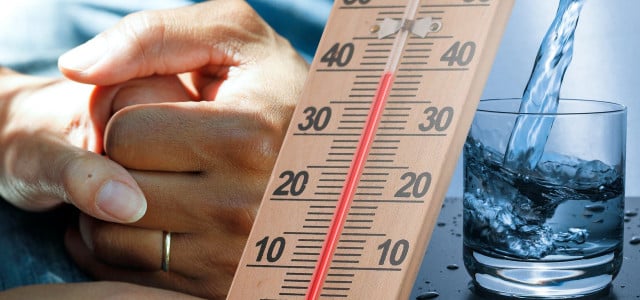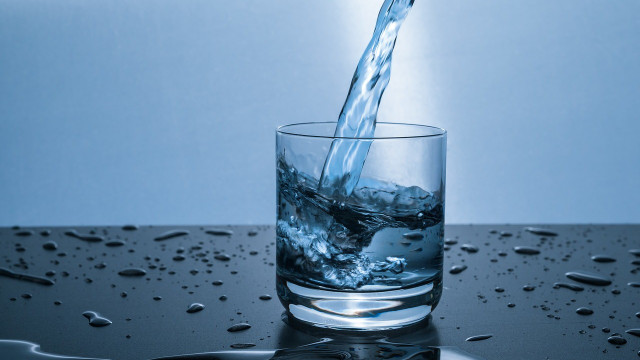
For some, it is the pinnacle of summer feelings. For others, the current temperatures above 30 degrees are pure agony. And sometimes even dangerous. The risk of death increases from as little as 30 degrees Celsius. We will explain to you what you absolutely have to watch out for when the temperatures are record high and which groups of people you should take care of.
In the coming days it will be hot in Germany. According to the German Weather Service, a heat wave will bring temperatures of up to 40 degrees this week. After a short cool-down, the heat should start again on Sunday.
While some are cheering and enjoying the hot summer days, others are really struggling – even to the point of serious health problems. Extreme heat puts a strain on the lungs, the heart and the psyche – and can become a serious hazard. Health Minister Karl Lauterbach wrote down at the weekend Twitter, you have to protect older and sick people from the heat wave. “Liquid supplies, fans, talk about the importance of hydration. Be available.” He even feared fatalities. On very hot days, clinics are prepared to bring patients with heat-related symptoms such as dehydration and circulatory problems to the emergency room.
Heat is also particularly dangerous for babies, small children, pregnant women and the chronically ill. Taking certain medications can also make you more susceptible to heat-related health problems.
Heatwave: who is most at risk?
People over 65 and people with chronic pre-existing conditions suffer particularly from the effects of the heat wave – especially if they drink too little. High temperatures increase the risk of falls, dehydration, confusion and circulatory problems up to and including circulatory arrest.
The body protects itself from the high outside temperatures with “evaporative cooling”: It occurs when sweat evaporates on the skin and cools it down. But this protective mechanism can be significantly reduced in older people. Medications can also help a person sweat less than is necessary. If it is no longer possible to cool down through sweating, there is a risk of heat build-up: blood vessels in the arms and legs dilate, blood pressure drops. Reduced blood flow to the brain can lead to unconsciousness. If the entire body overheats – the temperature can then rise to over 40 degrees within a short time – there is also a risk of brain swelling. Even such a heat stroke can be fatal.
Babies and small children are also at risk: they are less able to adapt to high temperatures than adults, they produce less sweat and their skin surface is larger in relation to their body weight.
How dangerous are the hot days?
From a temperature of 30 degrees Celsius, we speak of hot days. During a heat wave, it is over 30 degrees during the day for several days, and the temperature does not drop below 20 degrees at night. If the body cannot recover sufficiently at night, heat-related stress increases and dangerous heat build-up or life-threatening heat stroke can occur. It becomes particularly dangerous when the outside temperature exceeds body temperature (about 37 degrees Celsius). The body can then no longer emit the heat to the outside.
Experts recently calculated a significant increase in heat-related mortality for the particularly hot summers of 2018 to 2020: “With an estimated number of around 8,700 heat-related deaths, the year 2018 in particular is of a similar order of magnitude to the historical heat years of 1994 and 2003 (around 10,000 deaths each)” , wrote researchers from the Robert Koch Institute (RKI), the Federal Environment Agency (Uba) and the German Weather Service (DWD) recently in the “Deutsches Ärzteblatt”. The researchers estimate 6,900 heat-related deaths in 2019 and 3,700 in 2020.
Sufficient liquid for seniors and children
Water is the be-all and end-all when it’s hot – this applies to young and old. However, older people have to pay more attention to their fluid balance than younger people, because the risk of a lack of water increases with age. The causes lie in insufficient fluid intake and possibly larger fluid losses. In old age, the sense of thirst often decreases and people drink less.

It should be at least two liters of water a day. It’s best to drink a glass of water every hour – even if you’re not thirsty, that’s the recommendation of the Federal Environment Agency in its heat etiquette. “Recommended drinks in hot weather: tap water, mineral water, chilled herbal tea with no added sugar, tea with mint and lemon. Important: do not drink ice cold!”
It can be helpful to place several glasses with water in frequently used places in the apartment, for example next to the refrigerator, in the hallway and in the bathroom.
Heat timetable: basic rules for hot days
Everyone should protect themselves from the heat – no matter how old they are:
- Keep rooms cool, only ventilate early in the morning and at night. Keep windows closed and blinds down during the day.
- Drink a lot and eat salty foods, because you lose minerals when you sweat. Eating the right things on a hot day can help us deal with the heat better.
- Limit outdoor activities to the cooler mornings and evenings. Children should play in the shade.
-
Never leave children and dogs unattended in the car.
- Check the skin temperature of infants, small children and the elderly regularly, cool with a damp cloth if necessary.
Weakness, fever, severe headache, confusion, dizziness, nausea and muscle spasms are warning signs. You should take those affected to a cool place, cool them with damp towels, raise their legs, give them something to drink and call the doctor.
Here you will find tips and home remedies to help with circulatory problems.
With material from the dpa.
Read more on Techzle.com:
- Sleeping in the heat: 12 common mistakes that make you sleep less well
- 7 common mistakes to avoid when it’s hot
- Cooling your home without air conditioning: tips & tricks